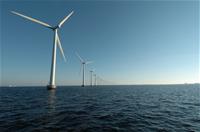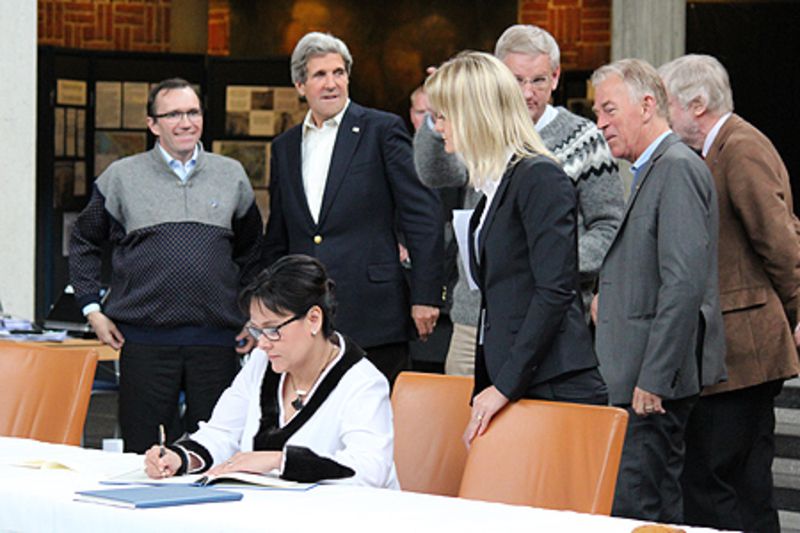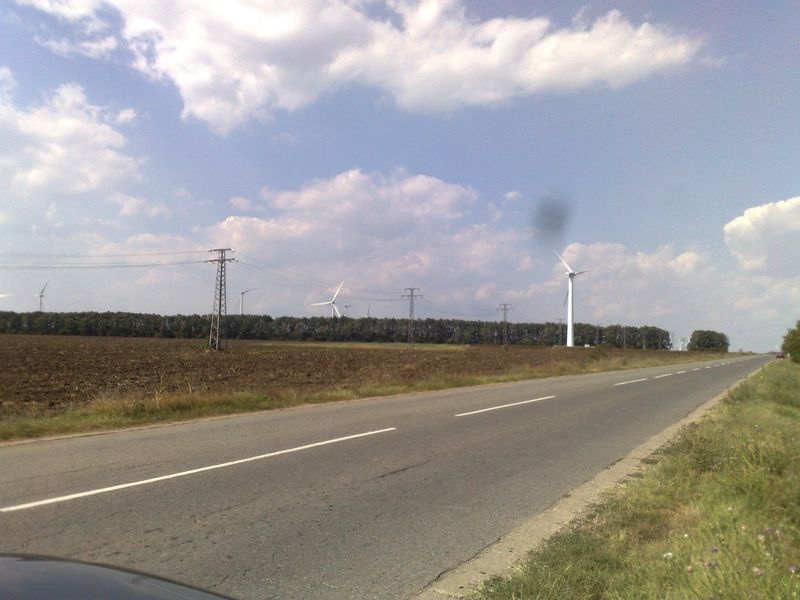The fight for an agreement on climate change is still not lost
Adelina Marini, July 12, 2009
 The question is how the battle for the real aversion of climate change will finish? The problem is that although difficult, a compromise has been reached at the G8 summit in L'Acquila. A compromise that was far from its initial goal - the leaders of the most developed industrialized countries of the world as well as those of the emerging economies have agreed to diminish greenhouse gas emissions by half by 2050 which is a retreat from the initial target of 80% by 2050. And as the online edition of the "New York Times" says, it was not quite clear why the emerging economies retreated from their initial engagements but some of the well known arguments were heard on this summit too like the one that the US and the rest of the developed countries who bear the main responsibility for the stockpiles of greenhouse gases in the atmosphere since the beginning of the industrialized revolution, should do more and faster. Otherwise the developing countries would be left with the unfair share of the burden in a moment when their economies are expanding fast.
The question is how the battle for the real aversion of climate change will finish? The problem is that although difficult, a compromise has been reached at the G8 summit in L'Acquila. A compromise that was far from its initial goal - the leaders of the most developed industrialized countries of the world as well as those of the emerging economies have agreed to diminish greenhouse gas emissions by half by 2050 which is a retreat from the initial target of 80% by 2050. And as the online edition of the "New York Times" says, it was not quite clear why the emerging economies retreated from their initial engagements but some of the well known arguments were heard on this summit too like the one that the US and the rest of the developed countries who bear the main responsibility for the stockpiles of greenhouse gases in the atmosphere since the beginning of the industrialized revolution, should do more and faster. Otherwise the developing countries would be left with the unfair share of the burden in a moment when their economies are expanding fast.
For now this agreement is enough but it is now that the diplomatic shuffles will start so that more ambitious goals are negotiated before the Copenhagen summit in the end of the year where an entirely new agreement should be signed that will replace all current partial agreements. The NYT writes that the American president Barack Obama will continue to talk to China whose leader, by the way, had to quite L'Acquila because of the troubles with the Uighurs at home, because China at the moment is the biggest greenhouse gas polluter in the world.
But the EU has already begun diplomatic shuffles. From the 11th till the 14th the Swedish  environment minister Andreas Carlgren, whose country took over the Presidency of the EU on the 1st of July, is on a visit in Beijing. "The industrialized countries have a special responsibility to lead the way and make greater cuts of their greenhouse gas emissions but the fast developing countries should also have a significant contribution so that the main goal is in fact reached - and that is the increase of the temperature of Earth to remain below 2 C, so that we can avoid the irreversible consequences of further warming", the Swedish Presidency reports. The expectations are that during the EU-China meeting the transfer of technologies will be discussed.
environment minister Andreas Carlgren, whose country took over the Presidency of the EU on the 1st of July, is on a visit in Beijing. "The industrialized countries have a special responsibility to lead the way and make greater cuts of their greenhouse gas emissions but the fast developing countries should also have a significant contribution so that the main goal is in fact reached - and that is the increase of the temperature of Earth to remain below 2 C, so that we can avoid the irreversible consequences of further warming", the Swedish Presidency reports. The expectations are that during the EU-China meeting the transfer of technologies will be discussed.
The greatest problem still remains the price. Especially in a moment of such a severe financial economic crisis, it is extremely difficult too long-term goals to take over the short and medium-term goals - to save as many jobs as possible and the economies to start slowly but sustainable to grow again.
 And though most leading economies left the impression that they only talk and do nothing, we should confess that this is not quite true. The UK which is a member of the G8 not only has a minister, responsible for energy and climate change together but the upcoming week will announce its Strategy of the low carbon economy, the "Sunday Times" reported. The newspaper notes that the concerns over climate change will make another 1.7 million households fuel poor which means that totally 7 million households will spent more than 10% of their income on fuel!
And though most leading economies left the impression that they only talk and do nothing, we should confess that this is not quite true. The UK which is a member of the G8 not only has a minister, responsible for energy and climate change together but the upcoming week will announce its Strategy of the low carbon economy, the "Sunday Times" reported. The newspaper notes that the concerns over climate change will make another 1.7 million households fuel poor which means that totally 7 million households will spent more than 10% of their income on fuel!
The Renewable Energy Strategy. as its full name is, will be published on Wednesday. It plans more than £100 billion will have to be invested in renewable energy infrastructure, including 7,000 wind turbines, by 2020. To achieve this, it must increase the amount of energy generated from renewable sources from 2 per cent at present to 15 per cent by 2020, the newspaper reports.
In the document also stipulates that the energy bills will increase with about 20% so that the  investment could be paid off. Thus, each household which currently pays around 1,150 pounds per year fore electricity or gas will have to add on average some 230 pounds additionally.
investment could be paid off. Thus, each household which currently pays around 1,150 pounds per year fore electricity or gas will have to add on average some 230 pounds additionally.
Actually it is all a matter of point of view and of ability to convince society what is more important and, most of well, when? Because if we remember the other news from the G8 summit in L'Acquila was the proposal of the leading economies the oil exporting countries to increase the prices of oil to $70-80 a barrel but nothing more because this the wolf will be satiated and the lamb will remain whole. Then we should understand that this type of energy, in fact, is many times dearer but we did not understand this because it all happened lightly. But do you remember how much did a litre of gasoline cost 4 years ago? And how much did a barrel cost then? I, myself, remember that the OPEC was happy with $25 per barrel and that was enough for everyone. Now we pay double and even more.
 In other words, the transition towards renewable sources is an investment that can be paid if governments around the world make the transition painless and smoothly. Secondly, this would make our countries independent from energy geopolitics and prolongs the life of our civilization which is not something we should ignore. And third, but not last, is the fact that renewable energy is actually impossible to deplete in comparison to fossil fuels which will end some time in the future and that is not that far away.
In other words, the transition towards renewable sources is an investment that can be paid if governments around the world make the transition painless and smoothly. Secondly, this would make our countries independent from energy geopolitics and prolongs the life of our civilization which is not something we should ignore. And third, but not last, is the fact that renewable energy is actually impossible to deplete in comparison to fossil fuels which will end some time in the future and that is not that far away.
And since we talk a lot about big states, it's time that we think about what the situation in our country is. Because the simple fact that the steel plant "Kremikovtsi" was closed (for other reasons, not ecological) doesn't mean that we have solved our problems with the old installations and the many heating stations that still use coal. But let's wait and see what the new government will look like and will ask it whether it perceives climate change as part of the exotic news around the world.
 | © Government of Sweden
| © Government of Sweden | © КРИБ
| © КРИБ | © euinside
| © euinside